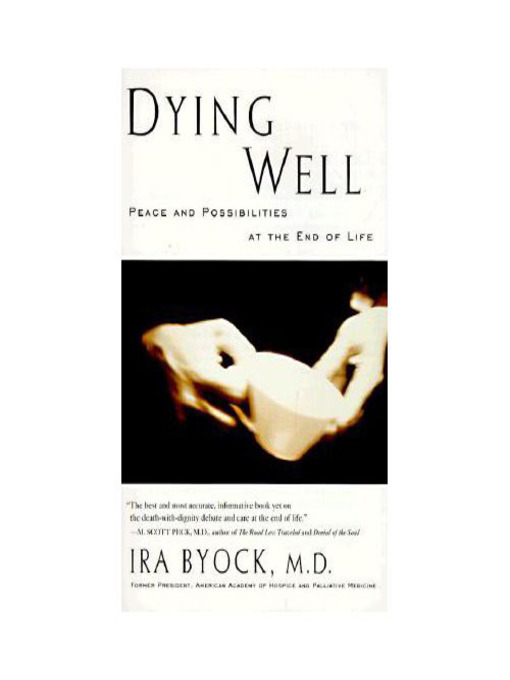
Dying Well
Lady Margaret Priam Series, Book 10
کتاب های مرتبط
- اطلاعات
- نقد و بررسی
- دیدگاه کاربران
نقد و بررسی

December 30, 1996
This study of how to die well displays uncommon vitality. Byock, president elect of the American Academy of Hospice and Palliative Care, is a gifted storyteller. Beginning with his own father's terminal illness, he details without scientific cant the process of decline that awaits most of us. The case studies, which form the humanistic soul of this work, never devolve into the maudlin or saccharine. Life on the edge of the great crossing is explored in all its sadness and pathos, but Byock also makes room for wisdom, hope and even the joy of final understanding. By recounting the passages of patients in his Missoula, Mont., practice, Byock makes a forceful case for hospice care and against physician-assisted suicide. He demonstrates how the physical pain and emotional despair of the dying may be handled. The family constellation of the terminally ill is also analyzed, with emphasis on a hospice's ability, through its doctors, nurses, psychologists and social workers, to help those left behind. Not only is this book informative, especially the question-and-answer section at the end, it is also insightful. Readers will sense Byock's personal growth as his understanding of final issues flowers through a 20-year specialization. Byock recalls his growth from a callow resident to a concerned son and, finally, to a healer with a mission. Whether it's the middle-aged mother who must resolve disillusionment with her sister, the bitter father of three who achieves serenity or the gutsy teenage girl with a rare genetic disease, the people whose sojourns Byock recounts receive from him the dignity they merit. German rights to Kinder Verlag; author tour.

Starred review from January 1, 1997
Many terminally ill people fear that their last days will be spent as burdens to their families, helpless, without dignity, and in unbearable pain. Often, the only alternative to such a death seems to be assisted suicide. In either situation, the dying person and family members are denied the opportunity to make the most of their remaining lives. Byock, a hospice physician practicing in rural Montana, learned well the possibilities for dying while caring for his father, who died from pancreatic cancer during Byock's medical training. This book tells the story of his father's final illness and those of hospice patients Byock has helped through the dying process. Focusing on the clinical, emotional, and spiritual aspects of death, the stories emphasize Byock's unshakable belief that physical and psychological suffering can always be alleviated through the devoted efforts of hospice caregivers. He offers realistic yet compassionate answers to the hard questions asked by dying patients, their families, and a society unwilling to accept that all life eventually comes to an end. Highly recommended for all collections.--Karen McNally Bensing, Benjamin Rose Inst. Lib., Cleveland

December 15, 1996
The title identifies the main point of this book: that dying well, not a "good death," should be one's goal at life's end. Byock is a leader in the hospice movement and an experienced frontline physician, and he focuses on the continuous aspect of dying rather than the one-shot of death. First, he stresses, pain must be controlled, and then fear and loneliness reduced. Death, he reminds, is as much a natural part of human life as birth, and both can promote growth and understanding. He describes 12 case histories at length, including that of his father, a rural general practitioner. He punctures many myths as he demonstrates that it is not illegal to die at home, that death by starvation is not necessarily painful, and that addiction to painkilling drugs is not a serious problem for a dying person. Ever honest, he even cites one case in which pain, despite his claims that it can always be controlled, really could not be. ((Reviewed December 15, 1996))(Reprinted with permission of Booklist, copyright 1996, American Library Association.)

























دیدگاه کاربران